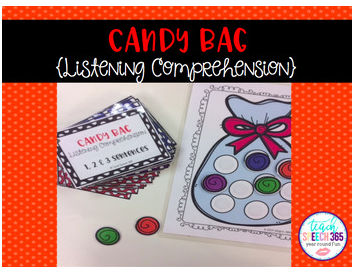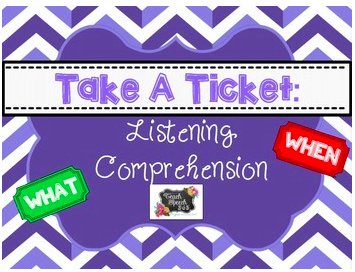The SLP’s Role in Reading Comprehension
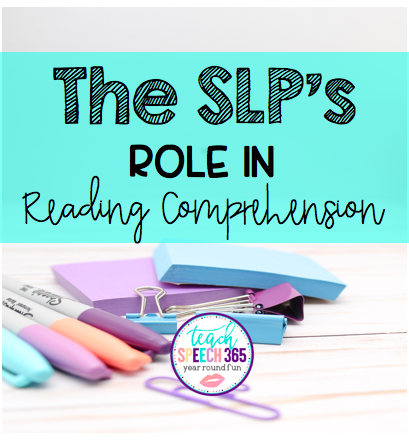
Determining our role in reading comprehension can be difficult, especially in the school setting. While it definitely falls under our scope, it can be somewhat murky to figure out who the best person is to focus on it if you work in the schools. I tend to leave reading comprehension goals to the special education teacher, but I definitely collaborate with him/her to determine what skills I can work on in conjunction to the goals she selects.
In this article, Lervag et al (2017) stated that reading comprehension “depends on decoding and listening comprehension” (from The Informed SLP). Listening comprehension is strongly linked to reading comprehension skills. I tend to focus on listening comprehension because I feel that we, as SLPs, are definitely qualified to work on this. I have several different tools that I use to do this and try to build up from shorter chunks of information to stories. Students have significant difficulties with listening comprehension because they generally also have processing deficits. I have anecdotally found that reading a passage more than once before asking questions has helped improve comprehension.
I will sometimes start with simple auditory memory tasks. This product has two parts, one for word recall and one for sentences.
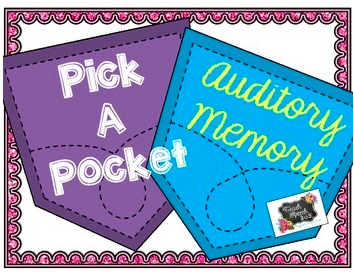
A lot of kids have difficulty identifying key words. So I like to teach them how to find the key words. We start in sentences. I like to have them slash the words that aren’t key words, so they’re left with just the important ones.
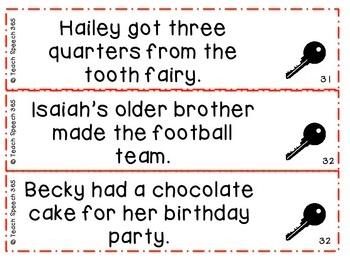
I’ve also made a few listening comprehension activities. Candy Bag Listening Comprehension has 1, 2, and 3 sentence stories plus questions.
Take A Ticket Listening Comprehension is a bit more difficult, because the students pick a ticket that corresponds to a different WH question. Whatever ticket they pick will be the type of question they answer.
So yes, we can have effects on reading comprehension by working on listening comprehension. I urge you to collaborate as much as possible with the special education teachers on your team, so you aren’t duplicating goals. Sometimes the goals will look similar, but we explain to parents in the meeting that we’re working on comprehension from two different angles. Do you agree? How do you balance listening and reading comprehension?

